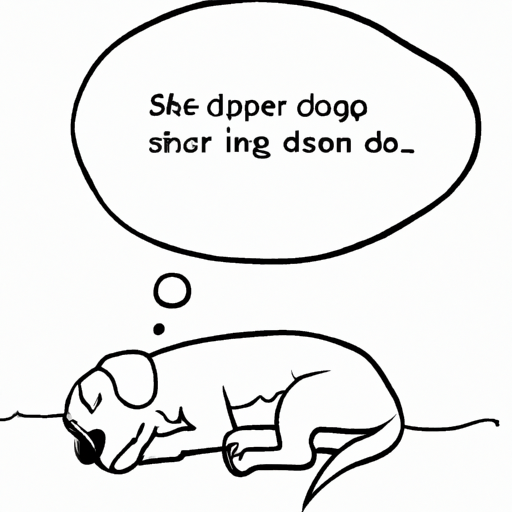Sleep is a critical part of every creature’s life, including our canine companions. Still, you may have noticed that your furry friend doesn’t always sleep peacefully. Instead, they often accompany their slumber with an array of sounds. Let’s delve deeper into why dogs make noise when they sleep.
1. Dreaming
Just like humans, dogs dream. These dreams can feature all sorts of scenarios which might prompt your dog to make noise in their sleep.
- Chasing: If your dog is dreaming of a high-speed chase, they might let out a muffled bark or growl.
- Playing: Your pooch could be dreaming of playing with their favorite toy or fellow dogs, which could result in a variety of noises.
2. Sleep Disorders
Dogs, like humans, can suffer from sleep disorders. If your dog’s sleep noises are accompanied by other concerning symptoms, they might be experiencing a sleep disorder.
| Sleep Disorder | Symptoms |
|---|---|
| Sleep Apnea | Loud snoring, sudden waking, day-time fatigue |
| REM Behavior Disorder | Physical activity during sleep, including barking or growling |
3. Breathing Issues
Certain dog breeds are more prone to breathing issues due to their physical characteristics. Brachycephalic breeds, for example, have a short nose and skull, which can make breathing more difficult and noisy.
- Brachycephalic breeds: Bulldogs, Pugs, Shih Tzus
- Common noises: Snoring, grunting, wheezing
4. Comfort Levels
Sometimes, the noises a dog makes in their sleep are simply due to their comfort levels. If your dog is uncomfortable, they may whimper or whine in their sleep.
- Check their bedding
- Ensure the room temperature is suitable
- Make sure they are well-fed and hydrated before sleep
5. Communicating Needs or Discomfort
In some cases, your dog might be making noise in their sleep because they’re in pain or discomfort. It’s essential to monitor their behavior and consult a vet if you’re concerned.
- Discomfort noises: Whining, whimpering, yelping
- Potential causes: Illness, injury, anxiety
FAQ
Q: Are all sleep noises a cause for concern?
A: No, not all sleep noises are a cause for concern. Many are simply a result of dreaming or comfort levels.
Q: My dog is snoring loudly, should I be worried?
A: Loud snoring can be a sign of sleep apnea, especially if accompanied by other symptoms like sudden waking or day-time fatigue. Consult your vet if you’re worried.
Q: My dog is making a new noise in their sleep, what should I do?
A: Any new or strange behavior can be a cause for concern. It’s always best to consult a vet to rule out any potential health issues.
Q: Is it normal for my dog to move while sleeping?
A: Yes, it’s completely normal for dogs to move in their sleep, just like humans do!
Remember, you know your dog best. If you notice any sudden changes or are concerned about their sleep noises, don’t hesitate to consult a vet. Your vigilance as a caregiver is a vital part of maintaining their health and happiness.



